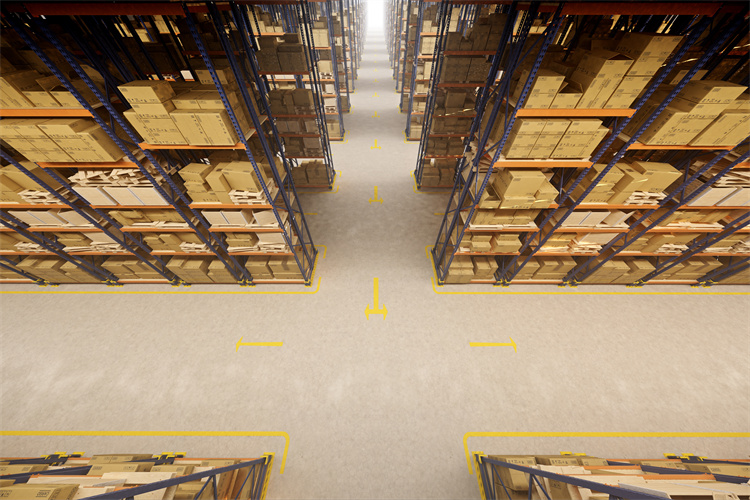Localized Compliance as a Key to Supply Chain Resilience in India

India's supply chain landscape faces unique challenges that demand innovative solutions. Infrastructure bottlenecks, fragmented logistics ecosystems, and regulatory complexities hinder operational efficiency. These issues, coupled with logistics costs accounting for 14% of GDP, significantly impact businesses. Supply chain Localized Compliance in India emerges as a vital strategy to address these hurdles. It ensures adherence to regional regulations, streamlines operations, and enhances supply chain resilience.
JUSDA, a global leader in supply chain management, leverages its expertise to provide tailored solutions. By integrating advanced technologies and supply chain Localized Compliance in India, JUSDA empowers businesses to navigate India's complex supply chain environment effectively.
Understanding Supply Chain Localized Compliance in India

What is Localized Compliance?
Localized compliance refers to the process of ensuring that supply chain operations align with the specific legal, regulatory, and cultural requirements of a particular region. It involves adapting business practices to meet local standards, which may include labor laws, environmental regulations, and ethical sourcing guidelines. In India, where the regulatory landscape is highly intricate, localized compliance plays a pivotal role in maintaining operational efficiency and legal adherence. Businesses must adopt compliance management tools to stay updated with evolving regulations, minimizing risks and ensuring smooth operations.
Relevance of Localized Compliance in the Indian Supply Chain
India's supply chain ecosystem is characterized by its diversity and complexity. The country’s regulatory environment demands businesses to navigate a maze of state-specific and national laws. Localized compliance becomes essential for organizations to meet these legal standards while reducing compliance risks. By implementing robust compliance strategies, businesses can enhance supply chain resilience, ensuring they remain agile and adaptable in the face of disruptions. This approach not only mitigates risks but also fosters trust among stakeholders, strengthening the overall supply chain.
Key Components of Localized Compliance
Localized compliance in supply chains encompasses several critical components. These include:
Labor Standards: Ensuring adherence to labor laws to protect workers' rights.
Ethical Sourcing: Procuring materials responsibly to maintain ethical integrity.
Environmental Regulations: Complying with laws aimed at reducing environmental impact.
Additionally, businesses must focus on the following aspects to achieve effective compliance:
Understanding regulations: Organizations need to stay informed about local, national, and international laws relevant to their supply chains.
Ensuring data quality: Centralized technology systems are vital for managing complex compliance data efficiently.
Maintaining ethical standards: This includes upholding labor standards, ethical sourcing, and environmental regulations.
By addressing these components, businesses can build a resilient supply chain that aligns with regional requirements while maintaining global standards.
Challenges Impacting Supply Chain Resilience in India
Global Disruptions and Their Local Impact
Global disruptions have significantly tested the resilience of India's supply chain. Events like the COVID-19 pandemic exposed vulnerabilities across industries. The shutdown of key suppliers caused shortages in critical components, such as semiconductors, which disrupted production timelines. Transportation bottlenecks further compounded the issue, leading to increased costs and delayed shipments. Demand volatility during this period made production planning unpredictable, impacting revenue streams and customer satisfaction.
Approximately 75% of companies reported supply chain disruptions during the pandemic, highlighting the need for robust strategies. Industries such as consumer-packaged goods and pharmaceuticals faced acute challenges, underscoring the importance of leveraging disruptive technologies to enhance resilience. These technologies can help businesses adapt to global uncertainties while maintaining operational efficiency.
Regulatory Complexities in the Indian Market
India's regulatory environment presents a labyrinth of challenges for businesses. The coexistence of central and state-level laws creates a complex framework that companies must navigate. Data localization requirements mandate specific storage practices, while legacy systems hinder seamless data integration. Emerging regulations on data protection, artificial intelligence, and environmental, social, and governance (ESG) standards add further layers of compliance.
Foreign companies often face stringent tax inspections, which can result in hefty fines. The term "tax terrorism" reflects the aggressive enforcement of tax compliance, creating a challenging environment for international investors. Additionally, high tariffs and non-transparent regulations limit market access, making it difficult for businesses to track and meet compliance requirements effectively.
Fragmented Supplier Ecosystem and Infrastructure Gaps
India's fragmented supplier ecosystem and infrastructure gaps pose significant challenges to supply chain resilience. Inadequate transportation networks and outdated warehousing facilities lead to inefficiencies. Poor road conditions, congested ports, and limited cold storage capacities delay shipments and increase costs. The logistics sector's fragmentation exacerbates these issues, creating communication gaps and extending lead times.
These challenges highlight the need for integrated solutions that address infrastructure bottlenecks and improve coordination among suppliers. Advanced technologies and localized compliance strategies can help businesses overcome these hurdles, ensuring a more resilient supply chain.
The Role of Warehousing in Overcoming Logistical Barriers
Warehousing plays a pivotal role in addressing logistical challenges within India's supply chain ecosystem. It serves as a strategic enabler, ensuring the seamless flow of goods while mitigating inefficiencies caused by infrastructure gaps and fragmented supplier networks.
Modern warehousing solutions optimize inventory management and reduce lead times. By acting as centralized hubs, warehouses streamline the storage and distribution of goods, ensuring that products remain accessible when needed. This capability becomes particularly critical in managing fluctuations in demand and supply, which are common in India's dynamic market environment. Strategically located warehouses further enhance efficiency by minimizing transit times and aligning stock levels with regional market requirements.
Tip: Businesses leveraging advanced warehousing technologies, such as real-time inventory tracking systems, gain a competitive edge by improving operational transparency and responsiveness.
JUSDA's warehousing services exemplify the transformative potential of modern logistics infrastructure. With facilities across key Indian locations like Chennai, Ranjangaon, and Bhubaneswar, JUSDA provides over 10,700 square meters of storage space. These warehouses integrate cutting-edge systems like eVMI and JusLink, enabling real-time inventory tracking and efficient stock management. Such innovations empower businesses to maintain optimal inventory levels, reduce wastage, and enhance supply chain resilience.
Warehousing also addresses India's infrastructure bottlenecks by bridging gaps in transportation and storage. Efficient warehousing solutions reduce dependency on unreliable road networks and congested ports, ensuring timely delivery of goods. By consolidating shipments and optimizing storage, warehouses help businesses lower logistics costs while maintaining service quality.
In India's complex supply chain landscape, warehousing emerges as a cornerstone of resilience. It not only overcomes logistical barriers but also supports businesses in achieving operational excellence and market adaptability.
Strategies for Implementing Supply Chain Localized Compliance in India
Leveraging Technology for Compliance Management
AI and Automation in Supply Chain Compliance
Artificial intelligence (AI) and automation are transforming supply chain compliance by streamlining processes and reducing human error. These technologies enable businesses to monitor compliance requirements efficiently while maintaining agility in their operations. Automated systems can analyze vast amounts of regulatory data, ensuring timely updates and adherence to evolving standards. AI-powered tools also enhance risk management by identifying potential compliance gaps and suggesting corrective actions. This proactive approach minimizes disruptions and strengthens supply chain resilience.
Real-Time Monitoring with Digital Platforms like JusLink
Digital platforms such as JusLink provide real-time visibility into supply chain operations. These platforms integrate IoT and cloud computing to track compliance metrics across multiple nodes. Real-time monitoring ensures that businesses can address compliance issues promptly, reducing risks and improving performance. JusLink’s advanced features, including automated alerts and centralized data management, simplify compliance assessments and enhance supplier relationship management. By leveraging such platforms, companies can achieve greater transparency and operational efficiency.
Building Local Partnerships for Supply Chain Resilience
Collaborating with Regional Suppliers
Collaborating with local suppliers is a strategic move to enhance supply chain resilience. Regional suppliers offer the advantage of nearshoring, ensuring local availability of critical supplies. This reduces lead times and mitigates risks associated with global disruptions. Strong partnerships with local suppliers also improve supplier relationship management, fostering trust and long-term collaboration. Businesses can benefit from the agility and adaptability of regional suppliers, ensuring consistent supply chain performance.
Engaging Local Regulatory Experts
Engaging local regulatory experts is essential for navigating India’s complex legal landscape. These experts provide valuable insights into state-specific laws and compliance requirements, ensuring businesses remain aligned with regional standards. Their expertise helps companies address compliance challenges effectively, reducing risks and enhancing supply chain strategies. By forming strategic alliances with regulatory professionals, businesses can strengthen their compliance frameworks and improve overall supply chain performance.
Adhering to Regional Regulations and Standards
Understanding State-Specific Laws in India
India’s regulatory environment varies significantly across states, making it crucial for businesses to understand state-specific laws. Companies must stay informed about regional labor standards, environmental regulations, and tax policies to ensure compliance. A centralized compliance management system can streamline this process, providing real-time updates and reducing duplication of efforts. This approach enhances visibility and minimizes compliance risks, ensuring smooth supply chain operations.
Ensuring Consistency Across Diverse Regions
Maintaining consistency across diverse regions requires robust compliance strategies. Businesses must implement standardized processes to align with varying regional requirements. Automatic alerts for regulatory changes and simplified compliance assessments can ensure timely adherence to laws. By leveraging technology and engaging local experts, companies can achieve consistency while maintaining agility in their supply chain operations. This strategic approach fosters resilience and supports long-term transformation.
Optimizing Warehousing Solutions for Localized Compliance
Role of JUSDA's Warehouse Services in India
Warehousing plays a critical role in ensuring localized compliance within India's supply chain ecosystem. JUSDA's warehouse services provide businesses with the infrastructure and tools needed to meet regional regulatory requirements while optimizing operational efficiency. With strategically located facilities in Chennai, Ranjangaon, and Bhubaneswar, JUSDA offers over 10,700 square meters of storage space. These warehouses are designed to address India's logistical challenges, such as fragmented supplier networks and infrastructure gaps.
JUSDA's warehousing solutions go beyond traditional storage. They incorporate advanced technologies to streamline inventory management and enhance compliance. Features like bonded storage and cleanroom facilities ensure adherence to environmental and safety standards. Value-added services, including labeling, kitting, and repacking, further support businesses in meeting region-specific requirements. By leveraging these capabilities, companies can reduce lead times, minimize costs, and maintain compliance across diverse markets.
Global best practices also influence JUSDA's approach. For example, companies like WIN SOURCE have established warehouses across key regions to enhance localized support. They utilize flexible inventory management systems and digital technologies to adapt to market uncertainties. Similarly, JUSDA's warehouses integrate cutting-edge tools to ensure seamless operations and compliance.
Real-Time Inventory Management with eVMI and JusLink
Real-time inventory management is essential for maintaining compliance and operational efficiency. JUSDA employs advanced systems like eVMI (Vendor Managed Inventory) and JusLink to provide businesses with complete visibility into their supply chains. These tools enable real-time tracking of inventory levels, ensuring that businesses can respond quickly to regulatory changes and market demands.
eVMI facilitates collaboration between suppliers and buyers by sharing real-time data. This transparency reduces stockouts and overstocking, optimizing inventory levels. JusLink, on the other hand, integrates IoT and AI technologies to monitor compliance metrics and streamline decision-making. Automated alerts notify businesses of potential issues, allowing for proactive resolution.
By combining these technologies, JUSDA empowers businesses to achieve localized compliance while enhancing supply chain resilience. Real-time data insights improve decision-making, reduce risks, and ensure that operations remain aligned with regional standards.
Case Study: JUSDA's Role in Enhancing Supply Chain Resilience

Overview of JUSDA's Localized Compliance Solutions
JUSDA has developed a comprehensive suite of localized compliance solutions tailored to address the complexities of India's supply chain landscape. These solutions integrate advanced technologies, such as the JusLink platform, to provide real-time visibility and ensure adherence to regional regulations. JUSDA's approach emphasizes collaboration with local suppliers and regulatory experts to streamline operations and reduce compliance risks. By leveraging its extensive global network and expertise, JUSDA enables businesses to navigate India's intricate regulatory environment effectively. Its warehousing services, equipped with systems like eVMI, further enhance compliance by optimizing inventory management and ensuring operational transparency.
Challenges Addressed and Solutions Implemented
India's supply chain ecosystem presents unique challenges, including fragmented supplier networks, infrastructure gaps, and regulatory complexities. JUSDA addressed these issues by implementing innovative strategies. For instance, its warehousing solutions bridged infrastructure gaps by providing strategically located facilities in Chennai, Ranjangaon, and Bhubaneswar. These warehouses incorporated advanced inventory management systems to improve efficiency and compliance. JUSDA also tackled regulatory challenges by engaging local experts and utilizing digital platforms like JusLink for real-time monitoring. This proactive approach minimized risks and ensured seamless operations across diverse regions.
Measurable Outcomes and Lessons Learned
JUSDA's localized compliance solutions delivered significant results. Businesses reported improved supply chain efficiency, with reduced lead times and lower logistics costs. The integration of real-time inventory tracking systems enhanced decision-making and minimized stockouts. Additionally, JUSDA's collaboration with local suppliers strengthened supply chain resilience, ensuring consistent performance during disruptions. This case study highlights the importance of leveraging technology and local expertise to address India's supply chain challenges. It underscores the value of adopting a proactive compliance strategy to achieve operational excellence and long-term sustainability.
Localized compliance serves as a cornerstone for building supply chain resilience in India. By aligning operations with regional regulations, businesses can navigate the complexities of India's diverse regulatory landscape while enhancing operational efficiency. This approach not only mitigates risks but also fosters adaptability in an ever-changing market environment.
Key Benefits of Localized Compliance Strategies
Benefit | Description |
|---|---|
Minimizing waste and optimizing resource utilization leads to significant savings in operational expenses. | |
Enhanced Resilience | Localized supply chains reduce susceptibility to global disruptions, mitigating risks associated with international logistics. |
Sustainability | Circular practices align with sustainability trends, providing a competitive edge in the market. |
Regulatory Compliance | Businesses adopting circular models are better positioned to comply with evolving regulations. |
Adopting localized compliance strategies offers several advantages:
Reduced costs through local sourcing and minimized transportation expenses.
Faster delivery times due to proximity to suppliers, improving responsiveness.
Improved relationships with suppliers, fostering better service and negotiation outcomes.
Increased flexibility, enabling businesses to adapt swiftly to market changes.
JUSDA exemplifies leadership in supply chain localized compliance in India. Its advanced technologies, such as JusLink and eVMI, empower businesses to achieve real-time visibility and operational transparency. With strategically located warehouses and a commitment to innovation, JUSDA enables companies to optimize their supply chain operations, ensuring resilience, cost efficiency, and long-term sustainability.
See Also
Jusda: Navigating Your Journey to Supply Chain Strength
Addressing Global Supply Chain Growth Obstacles Effectively
Proactive Strategies: JUSDA's Approach to Risk Management
Adopting Sustainable Practices to Mitigate Supply Chain Risks
Seamless Success: Ensuring Continuous Supply Chain Operations
